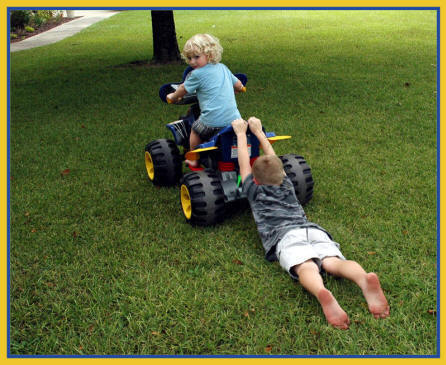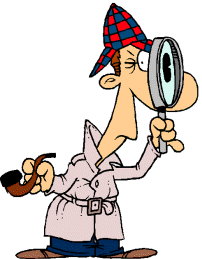
What is the purpose of education? Herbert Read (1943) stated in Education Through Art, that there are only two possible purposes: ". . . one, that man should be educated to become what he is; the other, that he should be educated to become what he is not" The first alternative refers to the development of one's potential. The second alternative refers to the use of education to indoctrinate.
|
Indoctrination is not
necessarily a bad thing. |  |
Teaching a child to share a toy is indoctrination
as opposed to developing his/her potential to have the most toys
by taking everyone else's toys away! |
| | | |
 But each instance of indoctrination can be scrutinized. But each instance of indoctrination can be scrutinized.
Have you been indoctrinated by music education, or by the culture that has produced your music education? Are you perpetuating the same indoctrination? Have you ever said, "That's the way I was taught." "That's the way we've always done it." ?  Think of some of the questions that an alien landing from Mars might ask about music in our schools. Think of some of the questions that an alien landing from Mars might ask about music in our schools.
| 
| | | "TAKE ME TO YOUR LEADER!" | | | Why are there only 12 pitches on a piano?
Why do your scales most typically have only 7 notes?
Who decided where those half steps would be? Why are there only 3 chords in so many songs? | Could you answer those questions? Or, have you always just taken it for granted that it should be that way? | Oh wait - the alien has more questions:  | Why do you choose those instruments?
Why do you teach marching band, but not rock band?
Why do you teach choral music, but not vocal improvisation? Why don't all students study music? Why don't most students continue to make music after their school years?
 |
Those are a little tougher. The purpose in asking these questions from the perspective of an outsider is to question all assumptions. In an article inaugurating The Society for Music Teacher Education in 1985, Charles Leonhard urged higher education to "Challenge all aspects of the program. Consider each course and define how it leads to better teaching" (Leonhard, 1985). From a larger perspective, the challenge to us as music educators might be to Challenge all aspects of music education. Consider each assumption and define how it leads to enriching the lives of all students. What are your objectives in music education? We often start with a goal in mind. Let's take a real life example: |